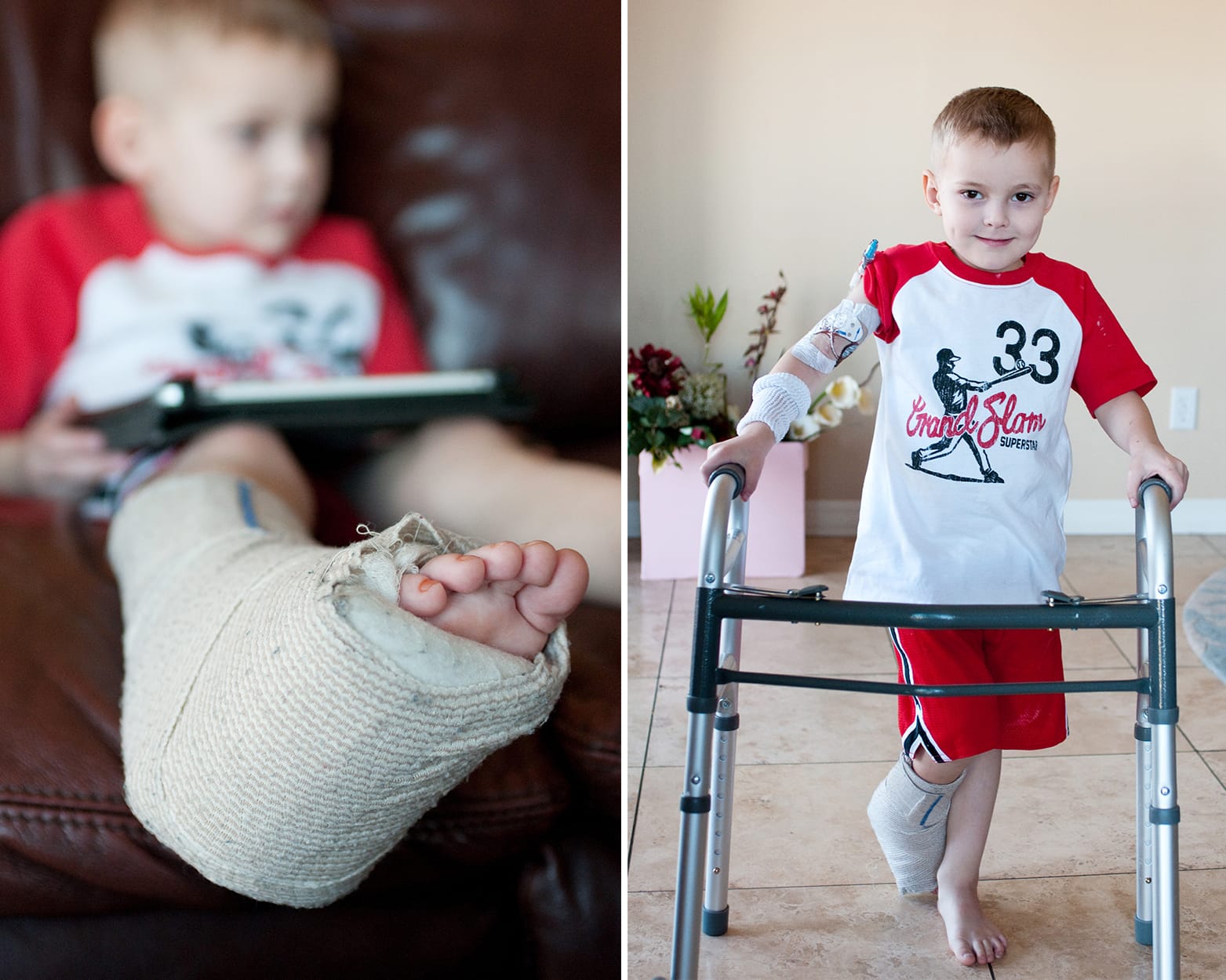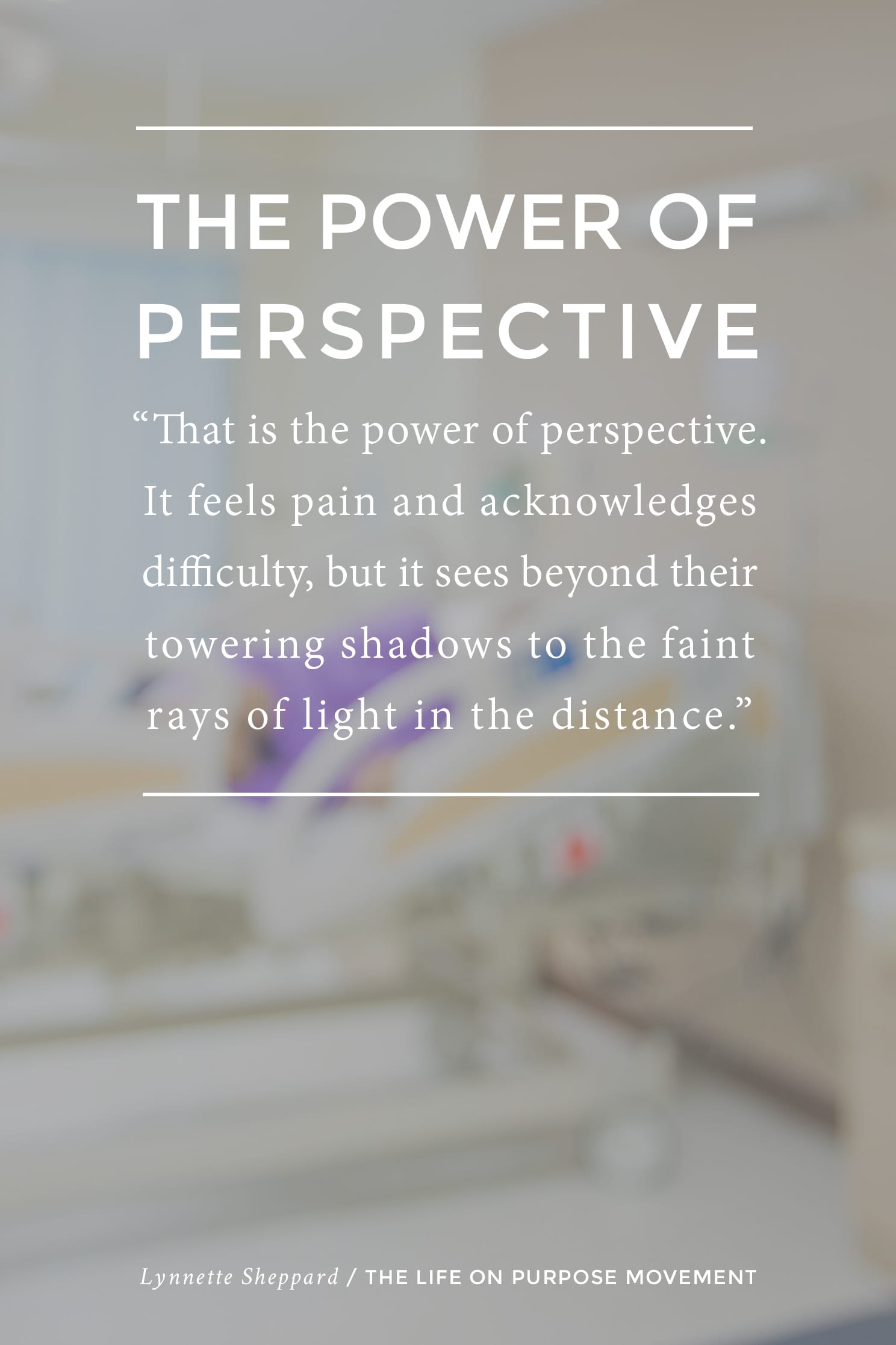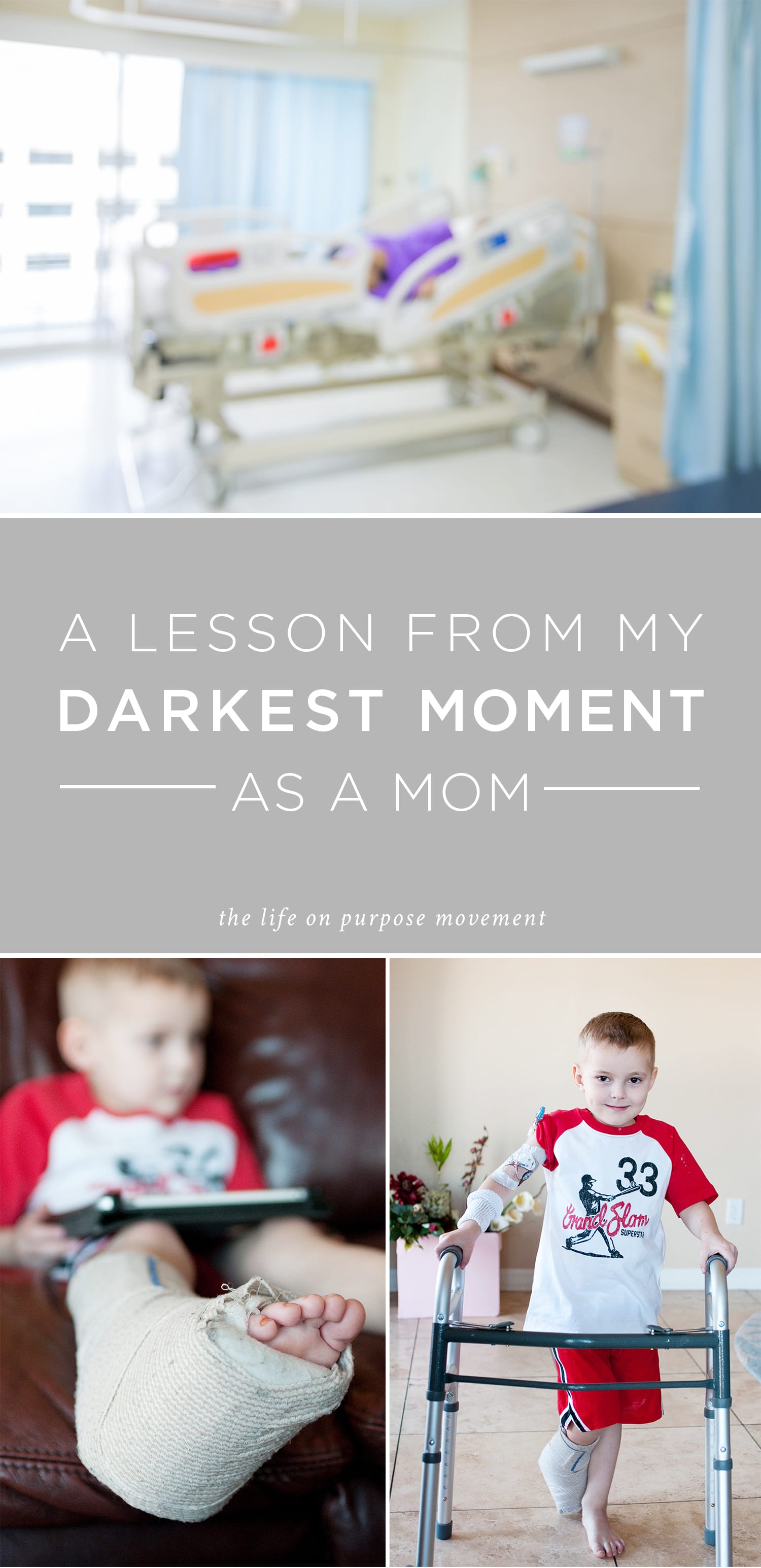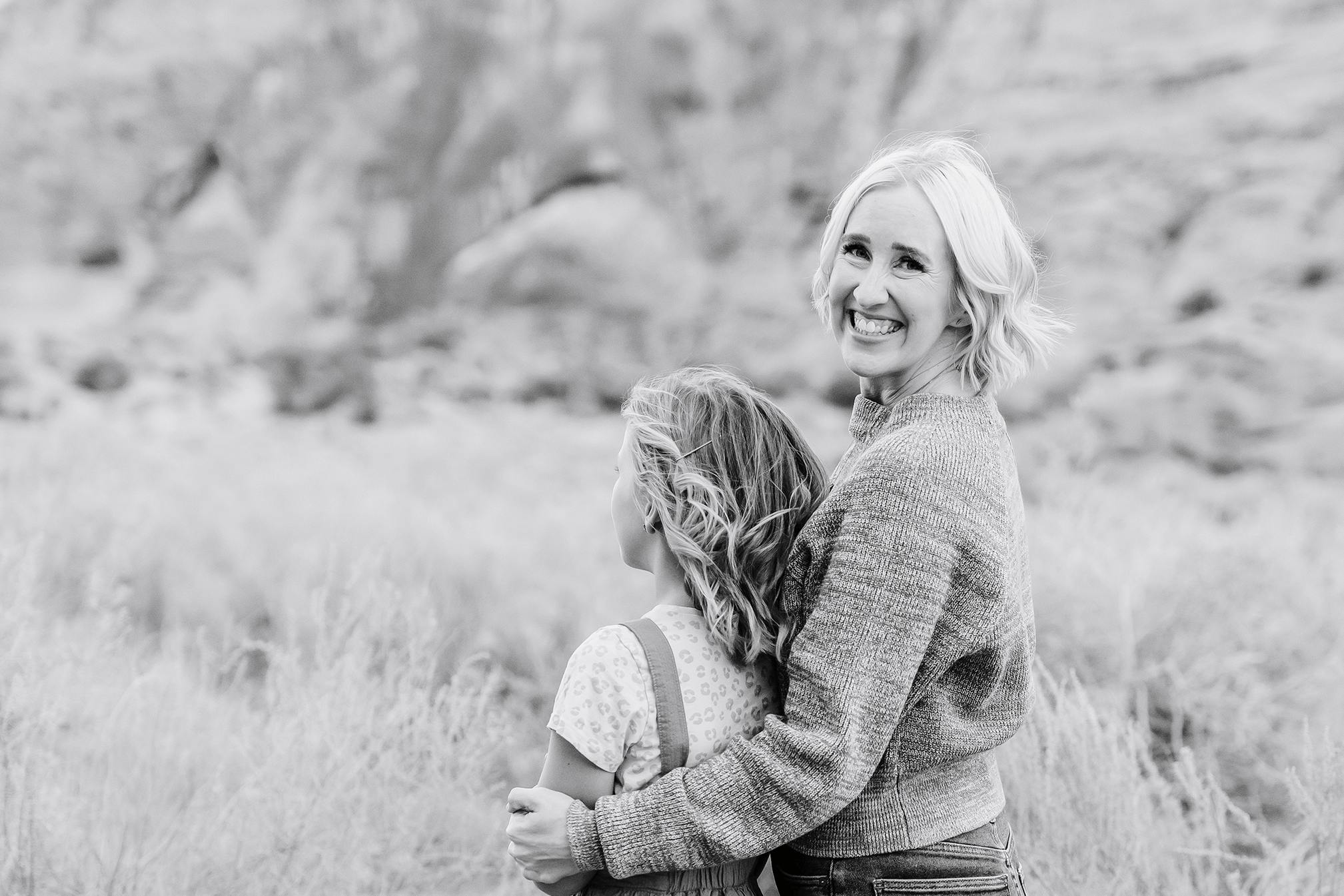Sinking into the chair beside my four-year-old son’s hospital bed with a heavy sigh, I felt the weight of the world on my shoulders, and it threatened to crush me.
It had been months since he started limping. Back then, I thought he may have fallen and twisted his ankle. He was, after all, only four, and falling was a common occurrence during active play.
But the limp remained for weeks, getting worse instead of better, and eventually leading us to the pediatrician’s office. “Everything looks good,” the x-ray tech told us after reviewing the images of his foot, “but follow-up with an orthopedist just to be sure.”
Without a diagnosis, it took six weeks to get an appointment with the bone specialist. By then, my poor little guy refused to put any weight on his heel and had started twisting his leg in an unnatural position to manage any walking at all.
Taking one look at the x-ray, the orthopedist saw the problem when we finally sat across from him in his office. “What did your pediatrician tell you?” he asked.
“He said that the x-rays looked normal,” I replied.
“This is not normal,” he said, pointing to a large black spot on the x-ray that nearly engulfed my son’s calcaneus (heel bone). “Bone should be white on an x-ray, not black.”
My heart sank as a tsunami of fear swept over me. The short life of my sweet baby rushed through my mind, and I braced myself for the worst.
“It looks like an aneurysmal bone cyst, which is a pocket of fluid that has collected inside his bone,” the doctor said. “It is not life-threatening, but will require surgery to clean out the cyst and replace the resulting space with a bone graft.”
I relaxed a little as the words “not life threatening” soothed my anxious heart.
The next few weeks were a blur of doctor’s visits and preparation for surgery, which all went well. But six weeks after surgery, just a few days after this active preschooler was finally able to walk again, he developed an infection in his bone, which landed him back in the operating room.

That was followed by a five-day hospital stay, consults with a variety of other specialists, a PICC line for IV antibiotics at home, no walking for another six weeks, more complications, and another surgery which led to several additional weeks of immobility.
I sat helplessly next to his bed in the loneliness of a sterile hospital room, and my heart broke into a thousand pieces. He was four years old, living in constant pain and not able to walk for weeks, which turned into nine months, and I was powerless to make him well.
At that moment, I lost my natural optimism. I could no longer see anything good about the mountain we were forced to climb.
It was too steep, too emotionally draining, too much to ask from one little boy and his mama.
As I was wallowing in self-pity, I got a call from a dear friend who told me about a mutual acquaintance whose 14-year-old son had just been diagnosed with a cancerous, inoperable brain tumor. His doctors had given him only a few months to live. My heart, already raw and tender, was instantly overwhelmed with grief for a boy and his family that I hardly knew.
My struggle, which was undoubtedly real, felt considerably lighter when I stepped back to look at the big picture with different eyes. Eyes of gratitude. Eyes of hope. Eyes of faith. Eyes that saw beyond my trials to the heartache of others—and arms that could help lift a portion of their burdens, despite the heaviness of my own.

That is the power of perspective. It feels pain and acknowledges difficulty, but it sees beyond their towering shadows to the faint rays of light in the distance—rays that can reach into the darkness and touch a downtrodden soul, bringing a welcomed respite from the storms of life, if only for a moment.
And sometimes, one magical moment is enough to buoy up a troubled mind and change a wounded heart. As Andy Andrews so eloquently said in his book, The Noticer:
“Most people think it takes a long time to change. It doesn’t. Change is immediate! Instantaneous! It may take a long time to decide to change…but change happens in a heartbeat!”
Perspective is where change is born. It comes as a result of experience, but we can also acquire a healthy dose of its life-altering elixir by observing and studying the lives of others and reflecting on how they might apply to our circumstances.
The next time you are feeling overwhelmed by the challenges of life and find yourself lingering too long in The Shadowlands of “Why Me?” try to gain some perspective by asking yourself the following questions and then earnestly seeking their answers.
6 Questions to Ask Yourself When You Need Perspective
1. What can I learn from this experience? How can it make me stronger?
2. Has anything in my past prepared me for this? How can I draw on previous experience to give me additional strength?
3. Do I know anybody who has walked this or a similar path ahead of me? Could they give me any advice? What can I learn from them?
4. Where is my support system? Would counsel with trusted friends and family members help me see things in a different, helpful light?
5. Where is the silver lining? What can I be grateful for amidst this trial?
6. What role does my faith play in helping me to overcome life’s difficulties? How can it help me now?
The road of life is lined with pitfalls, many of which are unexpected and unavoidable, but they need not break us. Often, gaining a little perspective is all that is necessary to turn our trials into vehicles for growth and positive, lasting change.






Great post. I wish your baby better! How scary no matter what others are facing it is still super scary when its happening to you.
Thank you, Joanna. He is eight years old now and doing great! You would never know anything ever happened except for the scar on his foot and the fact that one foot is slightly smaller than the other. It was a scary time, for sure, despite the difficulties of others. I think that is an important point you made, though. It is ok to admit that you are struggling and that something is hard, even though it might seem like others have it worse. There is no shame in feeling all the feelings that accompany a trial and it should not be a comparison game. But perspective sees beyond the hurt into brighter days ahead. That is the lesson I learned through it all.
Oh friend. My youngest daughter spent her first 6 years in and out of the hospital with a life threatening medical condition. She is stable now, but I have the same condition and lately it seems it’s been my turn to have complications. There is not much worse than watching your child suffer. It does give you incredible perspective and so much compassion for others. But know that it is ok to grieve too!!
I am so sorry for you and your daughter and hope both of you are on the mend soon. But you are right. It is absolutely OK to grieve. It is all part of the healing process to feel pain and acknowledge it for what it is. I do appreciate the perspective that I have gained through such pain, however. Thank you so much for reading and sharing your insight.